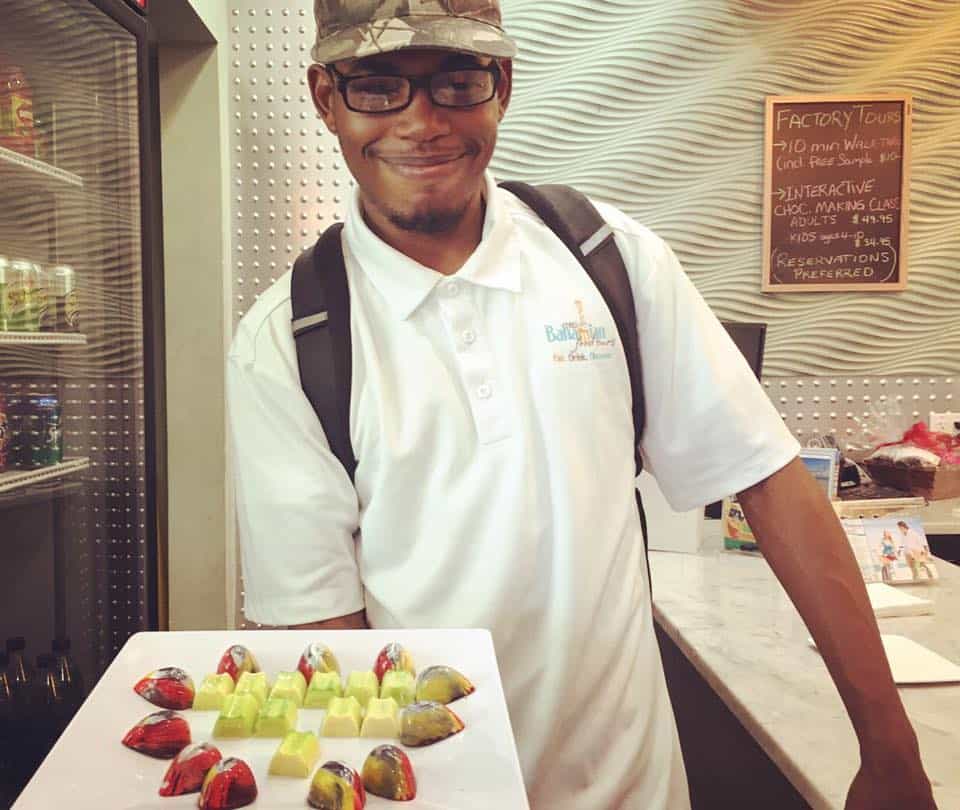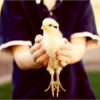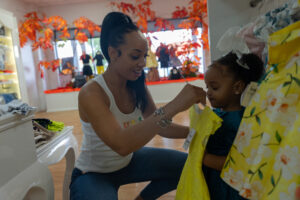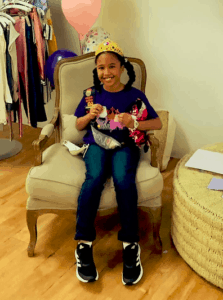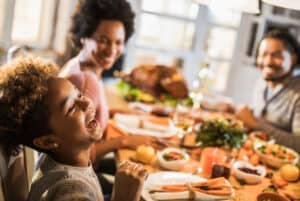A Family Farm Opened Doors For My Future
Photo credit: Tru Bahamian Food Tours
William Godet was raised in a family agri-business. Today he studies Marketing at University of the Bahamas. He also leads TruBahamian Food Tours, sharing his love for food, local rum, and the adventurous Bahamian life with visitors. Growing up around farmers markets, he discovered a passion for speaking and selling that opened a path to his future.
How did your family start its urban farm?
My Mom, Rionda Deleveaux Godet, has always had a passion for plants and a real green thumb. Her mother came from Tarpum Bay, Eleuthera, and her father was from Crooked Island.
She grew up in Nassau, but I think her family island roots developed a keen interest in growing.
Eleuthera has fantastic tomatoes in the growing season. There used to be a big canning factory in Rock Sound. People still know how to bottle tomatoes in those settlements. You go down to the dock, buy fish they’ve caught a few hours before, and cook it with the tomatoes. The taste is incredible.
Mom is a member of the local Orchid and Horticultural Societies. She loves bromeliads and finding interesting plants for the yard. My brother and I tagged along when she attended Bahamas National Trust plant shows, learning about plants and seasonal fruit.
When we moved to a 1.5 acre property in Westridge, Mom applied all the knowledge she was gaining. Our house was at the top of the hill. The area at the bottom was exclusively hers for gardening.
We had so many fruit trees: papaya, juju plums, Chinese berries, sugar cane, kumquats, cocoplum, sea grape, sapodilla, and sugar apple trees. Any time of year beside winter, we could go outside and pick local fruit.
My father, Dion, is not a grower, but he likes order and beauty. The first thing he taught me was how to cut the grass. I was very young when I started working on our garden, probably around seven. Pretty soon, I learned how to weed. There was always a lot of weeding to do.
Next I learned how to plant seedlings and keep them alive. We had a greenhouse on the property until a hurricane blew it down about seven years ago. My brother and I cared for the tomatoes.
We started Ridge Farms because we had too many tomatoes. We were supposed to sell our crop to a local food store. The store was able to get cheaper tomatoes from another supplier. They wanted us to drop our price, but that would have impacted our profit margin. We cancelled the deal but were stuck with all those tomatoes.
My Mom said, “let’s find another way to use them.” That is how Ridge Farms, our family business, was born. We began producing local tomato sauce, sweet jams, pepper sauces, pepper jellies, and wine pepper jellies.
The first thing we made was tomato sauce. That job wasn’t fun for my brother and me. It took so much time to make the product. We took super ripe tomatoes, cut off the bad parts, and boiled them to remove the softened skin. After the pulp was pureed and strained, it was simmered with other spices to create
Pretty soon we learned that processing the sauce put too much load on regular blenders. We kept burning up blenders until we switched to food processors. In the beginning, we used regular equipment. It took time for us to upgrade to commercial appliances. These days, we rarely produce tomato sauce because it is so labor intensive.
Mom always cooked to ensure the preserves were up to her standards. Christopher and I prepared the raw ingredients, processed the batches, then cured and heat sealed the bottles.
How did your family learn about food preserving?
Mom talked to people at BAIC (Bahamas Agricultural and Industrial Corporation) for guidance, but we mostly learned about bottling tomato sauce through trial and error. We had much more success with other products. We started small batch production to tweak taste and figure out measurements.
Did you invent a product yourself?
Sure–our Zango Masa is mild pineapple-pepper jelly with sweet pepper, onion, and jalapenos is my invention, but it happened purely by accident. I added pineapple to the wrong pot. My mom didn’t want us to waste the batch so we released it to the market. People loved it. Now we produce it by special request. It tastes like pineapple salsa.
Did your family study agriculture?
None of us formally studied agriculture, but we did receive technical assistance from Tim and Dr. Selima Hauber while they were at Lucayan Tropical Produce (LTP). The Haubers helped us set up our own hydroponic farm in 2008.
Photo credit: Urban Ag News
Exposure to local, high tech agriculture shaped Will’s view of the industry
LTP also exposed us to large scale agribusiness. Chris and I did a summer internship at the farm when we were in high school. At the time, they were growing a variety of vegetables and greens. They tested a variety of crops. Dr. Selima was propagating native orchids in a tiny lab. They worked with farmers across The Bahamas to develop innovative Farmers Markets.
I admired the way they used imported bees for crop pollination. The hydroponic technology was inspiring. Christopher and I got hands-on experience with industrial grading and packing machines. We learned how to wax cucumbers.
We are still very friendly with the Haubers. I love their children. Mom named her famous Zango Lucayan mild pepper jelly in honor of the Lucayan Tropical Produce because they helped us get started in farming.
How do you market those fabulous preserves and pepper sauces?
As a small batch, organic, family farm, we do not target grocery stores. Local consumers don’t understand that a $6 “local” jam may be made from imported guava paste, while our $12 jars come from locally sourced fruit that we collect, peel, seed, strain, and simmer.
We do not sell directly to local farmers markets or tourists any more because we don’t have time. My parents both work full time. Chris is playing pro soccer in Italy. I have been studying Marketing at University of The Bahamas, and working as a guide with TruBahamian Food Tours.
Photo credit: TruBahamian Food Tours
We market our preserves and sauces as hand-crafted gourmet gifts. We attract customers who attend events like Jollification, Wine and Art, or the Tru-Tru Bahamian Festival.
We also sell wholesale to several Bahamian boutique hotels, customizing products for each client.
Where is your family business headed now?
While upgrading our product labeling some years ago, we discovered another farm in the States with the name, Ridge Farms. So we rebranded as Island Gal at Ridge Farms, developed a custom logo, and registered our trademark.
We temporarily halted production during the pandemic. We used the time to refocus our product lines, scale up marketing, and prepare for relaunch. We want the farm to thrive in the emerging digital economy. We’re working to integrate our labels with QR phone scan technology. Finding convenient, secure customer payment solutions makes it easier for customers to enjoy our products.
Oh, and I also set up a little garden for my grandmother. We put in plants that repel pests, like rosemary, Spanish thyme, oregano and mint. The current edible crops are sweet potato and spinach.
What did you learn by growing up on an urban farm?
1 – One of the best lessons I learned was the value of a seed. One good seed can produce an infinite number of plants. I am always on the lookout for seeds.
A great way to start your own garden is by planting seeds from the produce you buy in the food store. Try sweet pepper, tomatoes, pumpkin, scallions.
2 – Start early and use insect repellents. Always get something done before the sun is high at noon. Don’t work at night when the mosquitoes come out.
I think farming has helped me become disciplined, prepared, and efficient.
3 – I think I have a better palate than people my age. I appreciate clean foods. I am able to taste many levels of flavour.
4 – My exposure to both the land and sea has helped me as a culinary tour guide. My mom taught me about farming; my dad and my cousins taught me to swim, dive, and spearfish.
I can talk to people about food, fine rums, and Bahamian culture, because of how I was raised.
Photo credit: TruBahamian Food Tours
Will leading a TruBahamian Food Tour
5 – What I learned from our family farm motivated me to study Marketing.
I was ten and Christopher, my brother, was nine when we started selling our products. Mom got a table at the Farmer’s Market once held in the courtyard of a restaurant on East Bay Street, now owned by Green Parrot.
Selling was fun. It made up for the batching. Manufacturing the product used to get on our nerves at the time. Selling didn’t feel like anything special–it was effortless. I was young. Although I was soft-spoken, I made sales. People complimented me.
The experience developed my confidence.

Will’s adventures include cycling, spearfishing, free diving, climbing, and traveling for great food.
Photo credit: Malcolm Parks

